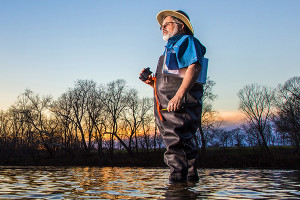
Position:
Professor Emeritus of Environmental Studies
Email:
wbousque@su.edu
Employed Since:
1993
Educational History:
B.S., Environmental Education and Science Education (Biology), Cornell University; M.S., Natural Resources, The Ohio State University; Ph.D., Science Education, The Ohio State University
Fields of Expertise:
Environmental education, science education, environmental protection at the community level, and Appalachian geography. My students and I investigate wetlands, evaluate water quality, and document the ecology of natural areas, particularly in and around the Shenandoah Valley region..
Professional Highlights:
In 2013, Dr. Bousquet and environmental studies undergraduates received the Joe Penfold Memorial Award for Grassroots Conservation. Presented by the Mason-Dixon Outdoor Writers Association, the award recognized 15 years of effort to preserve, study and promote the Abrams Creek Wetlands in Winchester and Frederick County, Virginia. As a Fulbright Scholar to Canada (Fall 2000), Dr. Bousquet taught a course on community environmental protection at Acadia University in Nova Scotia.
Personal Quote:I came to Shenandoah University for the opportunity to work closely with students in the classroom, in the field, and on projects that put our environmental knowledge to work in the Shenandoah Valley region and beyond. The students’ accomplishments and support from administrators and donors has made Environmental Studies one of this region’s most innovative small environmental programs.
Personal Highlights:
Married, with two adult children. Enjoy hiking, photography, and skiing. An avid fan of the Winter Olympics, Ohio State football, and Star Wars (the movie, not the missile defense system).
Recommended Link(s):
Environmental Studies at Shenandoah University
Describes Shenandoah University’s Environmental Studies Program and explains the types of courses and options offered.
SU-Blue Ridge Institute for Environmental Studies
Check it out! A guide to natural places to visit in the Shenandoah Valley region, plus research reports from Shenandoah University’s Environmental Studies Program, and resources for teachers, students, visitors, decision-makers and interested citizens.